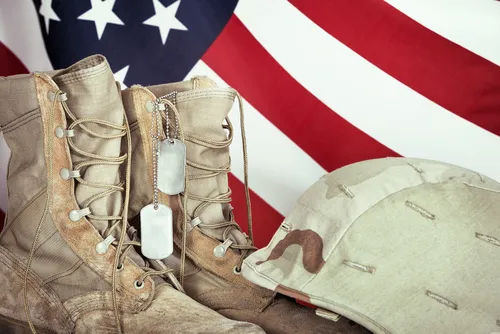The Government Accountability Office (GAO) has released numerous reports this year highlighting just how difficult it has been for veterans to obtain hard-earned disability benefits. The report, released in July, indicated that the department denies more than 80 percent of veterans administration appeals claims for benefits for Gulf War-associated illnesses, which reflects an approval rating which is three times lower than all other types of claims.
A few months earlier, the GAO released a report indicating that significant gaps in planning practices have reduced the ability for the agency to improve the timeliness of disability appeals decisions. Veterans who wish to appeal decisions on their compensation claims first appeal to the Veterans Benefits Administration and then to the Board. In 2015, veterans waited an average of almost five years for a decision by the Board in 2015.
In Dire Need of Additional Staff
While clearly staff resources have not sufficiently kept pace with increased pending appeals and additional staff are needed, the circumstances are significantly more dire than first glance: officials estimate that if the agency does not take any action (i.e. increase staff in 2018), veterans may have to wait an average of eight and a half years by 2026 in order for their appeals to be resolved.
While the VA has modeled different options for increasing staff levels, the GAO report took issue with the methods it used. First, the VA relied on fixed estimates for key variables such as staff productivity rather than a range of estimates to understand the effect these key variables have on staffing needs. In addition, the agency’s written workforce plans did not include detailed information consistent with sound planning practices, such as training plans. Without detailed workforce plans, the agency risks additional delays in hiring and preparing staff to help manage workloads in a timely manner necessary to resolve the backlog of appeals.
The GAO report highlighted a particularly inefficient part of the process, whereby when a veteran submits new evidence during the appeal process, the entire process goes through an additional round of reviews, which adds a significant amount of delay into the overall process.
Significant Gaps in Proposed Reform
While the GAO described the proposed reform as “promising,” it also identified significant gaps in its proposal. For example, the agency plans to implement appeals process reform while also managing the existing appeals inventory, additional hires and planned system changes. The GAO has described this as running “counter to sound redesign practices” because it fails to pilot test the changes in a limited manner before fully implementing them so as to manage potential risks. According to the GAO, the agency has also failed to identify how it will monitor progress and otherwise know whether or not it’s on track and meeting expectations. Without a plan for assessing the new proposed process which includes the public, no one can truly know the extent to which the new proposed process improves the current situation.
Finally, it is clear that the computer system supporting the VA’s appeals process is outdated and prone to failures. While the VA has proposed a new IT system, the agency’s plan lacks the proper details as to how its new system will be implemented and, overall, lacks specifications related to sound planning practices for implementing the new technology.
GAO’s Recommendations
In order to move forward in improving the appeals process, the GAO recommended that the VA:
- Apply sensitivity analyses in formulating staff needs;
- Develop a more detailed, timely workforce plan;
- Develop a method for measuring & monitoring reform; and
- Create a schedule for making IT improvements.
However, the VA indicated that it believed it has met the intent of the recommendations and does not need to take additional action.
Veteran Files Class Action Lawsuit over Delayed Appeals
In 2015, a Vietnam veteran who waited years for disability benefits from the department for claims related to post-traumatic stress disorder (PTSD) filed a class action lawsuit, seeking to force the department to expedite the growing backlog of appeals. The case was the first class action filed in the United States Court of Appeals for Veterans Claims.
The lead plaintiff, Conkley Monk Jr., suffered from PTSD and diabetes after being exposed to Agent Orange, an herbicide that was used during the Vietnam War. After receiving his diagnoses, he applied for disability compensation in 2011, and then had to file his appeal in 2013. As of 2015 when the case was filed, the department had not yet responded.
Around this same time that the case was filed in 2015, the number of appeals rose drastically because many veterans claimed that their claims had been improperly handled. In its haste to clear the backlog, the VA arguably made poor decisions that ended up making the appeals process worse. Around that time, wait times increased to around four years or more.
The lawsuit filed by Monk Jr. and others claimed that the wait effectively amounted to a denial of benefits and requested that the court order the VA to make a decision within 30 days on every appeal that had been pending for more than a year if the applicant had a medical or financial hardship. In response to the filing, the Veterans Court denied Monk’s petition to certify a class action and otherwise aggregate for adjudication the claims of thousands of veterans whose claims were similar to his own. The Veterans Court denied the request for disability benefits, claiming that it lacked the authority to certify classes of claims or to adjudicate disability benefits claims on an aggregate basis. However, in April 2017, the United States Court of Appeals, Federal Circuit held that the Veterans Court has the authority to certify a class for a class-action and to maintain similar aggregate resolution proceedings. This will be an important case to watch as it moves forward.
Veterans Disability Benefits Lawyer Serving New Orleans
If you are a veteran who has sustained a service-connected disability and had your claim denied for disability benefits, you should not have to wait years to hear back on your appeal. Our veterans’ disability attorneys are here to help answer your questions and ensure that your appeal is on the right track. Contact us today for more information on how we can help.






